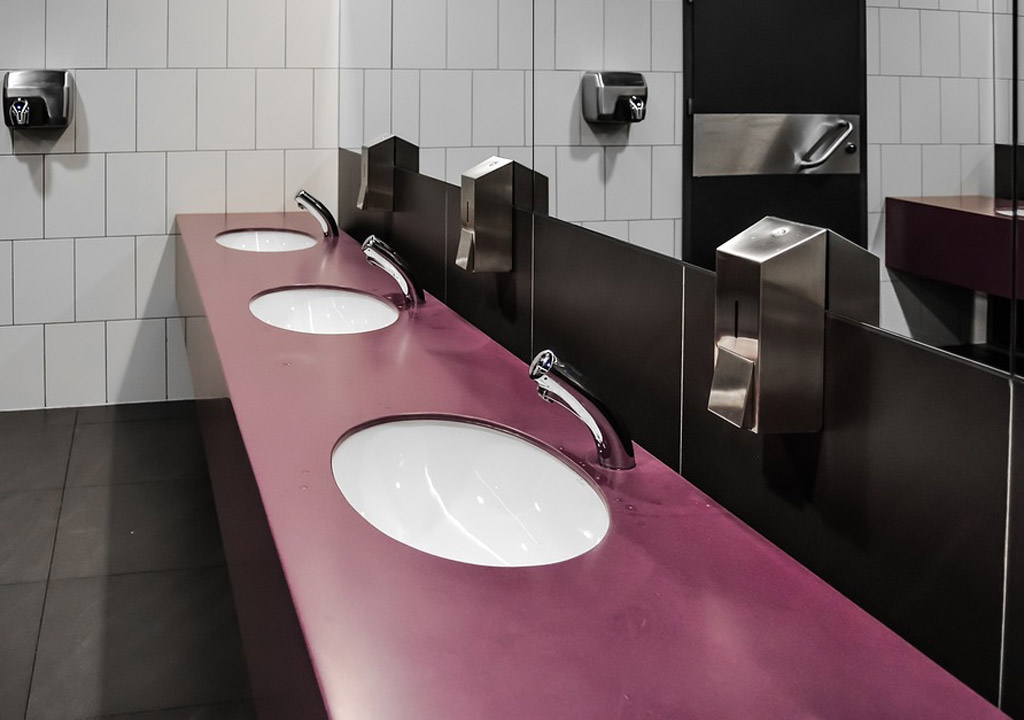
Commercial bathrooms serve a vital role in public spaces, including offices, restaurants, shopping centers, hotels, and other establishments. These high-traffic facilities are subject to heavy use and must maintain high standards of hygiene and safety for users. One critical element that is often overlooked but plays a crucial role in the functionality and maintenance of commercial bathrooms is the floor drain. Let’s explore the reasons why a floor drain is essential in commercial bathrooms and its benefits in ensuring a clean, safe, and efficient environment for all users.
- Preventing Water Accumulation and Slip Hazards: Commercial bathrooms are susceptible to water spills and splashes from sinks, showers, and toilets. Without a floor drain, water can accumulate on the floor, creating a hazardous environment for users. Slip and fall accidents are one of the leading causes of injuries in public spaces, and a floor drain helps prevent such incidents by swiftly draining away excess water, keeping the floor dry and safe.
- Managing Plumbing Issues and Leaks: Plumbing issues, such as leaking pipes or overflowing fixtures, can occur unexpectedly in commercial bathrooms. Having a floor drain ensures that any water leakage or spillage is promptly directed to the drain, minimizing potential damage to the bathroom’s structure and preventing water from seeping into adjacent areas.
- Supporting Efficient Cleaning and Maintenance: Regular cleaning and maintenance are essential to keep commercial bathrooms hygienic and pleasant for users. A floor drain facilitates cleaning procedures by allowing the easy removal of excess water, soap, and cleaning agents. It also aids in the removal of debris and dirt, contributing to a more effective and efficient cleaning process.
- Odor Control: Commercial bathrooms can be susceptible to unpleasant odors due to factors such as poor ventilation or accumulated water in low-lying areas. A floor drain helps to remove stagnant water, which can harbor bacteria and create foul smells, thus contributing to a fresher and more pleasant restroom environment.
- Meeting Health and Safety Regulations: Most building codes and health regulations mandate the inclusion of floor drains in commercial bathrooms. Compliance with these regulations ensures that the establishment is meeting the necessary safety standards and preventing potential liabilities arising from accidents or health hazards.
- Accommodating Accessibility: Floor drains play a crucial role in accommodating the needs of all bathroom users, including those with disabilities. A well-designed floor drain allows for easy wheelchair access and ensures a level surface, minimizing obstacles that might impede mobility.
- Controlling Pest Infestations: Stagnant water can attract pests such as insects and rodents, creating unsanitary conditions in the bathroom. A functional floor drain helps prevent water from accumulating and deters pests from breeding and nesting in the area.
- Handling Emergency Situations: In emergencies like fire incidents, a floor drain can aid in evacuating excess water used to extinguish the flames, preventing water from pooling and causing additional damage.
A floor drain is an indispensable component of a well-designed commercial bathroom. It not only ensures the safety and well-being of bathroom users but also supports the efficient maintenance and cleanliness of the facility. By preventing water accumulation, controlling odors, and adhering to health and safety regulations, a floor drain plays a significant role in creating a pleasant and hygienic restroom environment for all visitors.
For professional commercial plumbing in Doral or beyond, contact us today.
